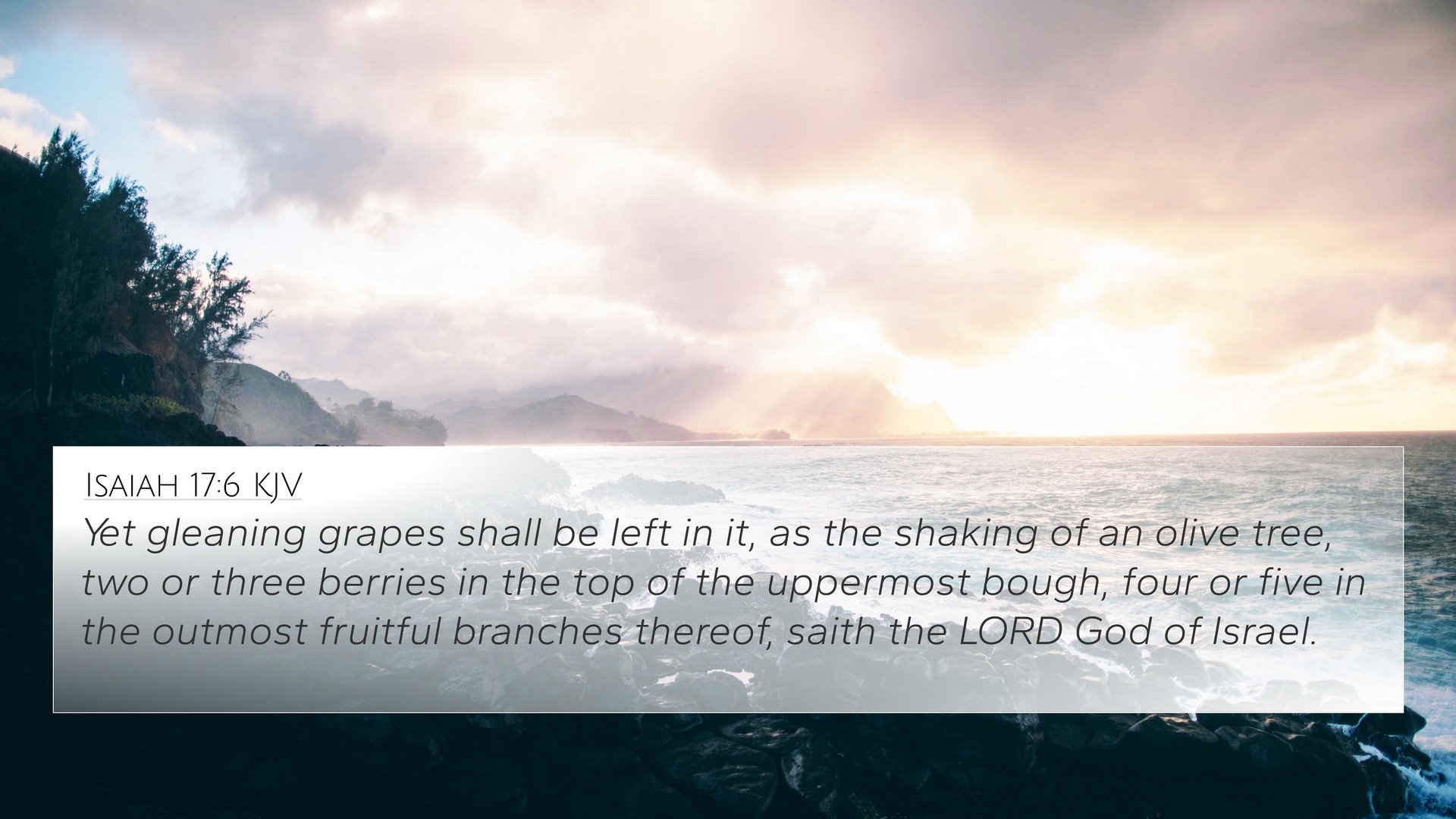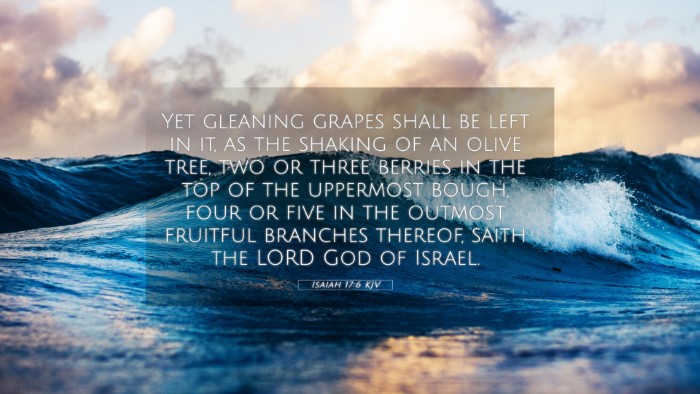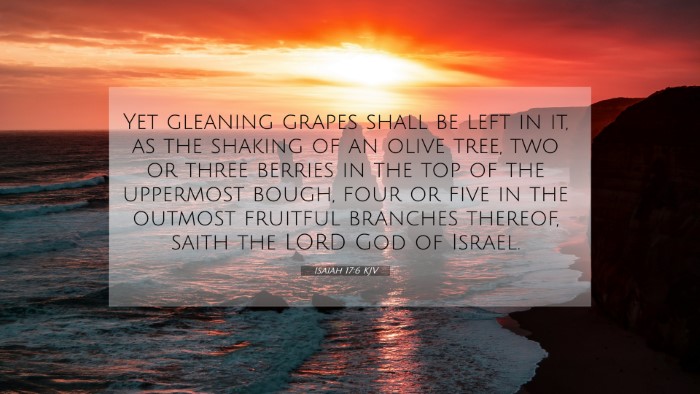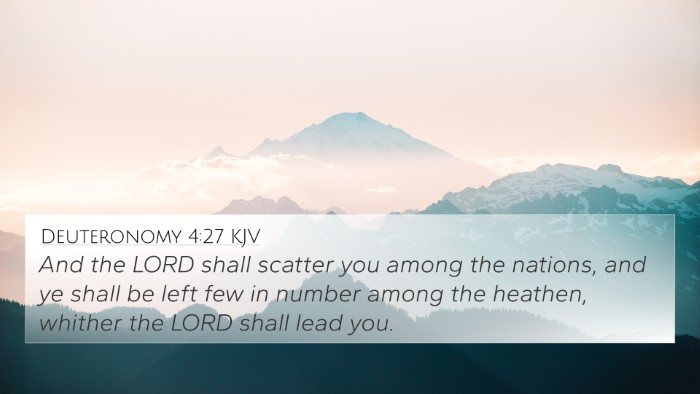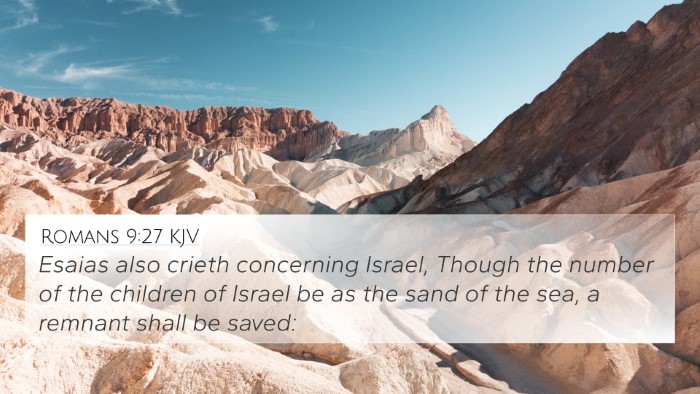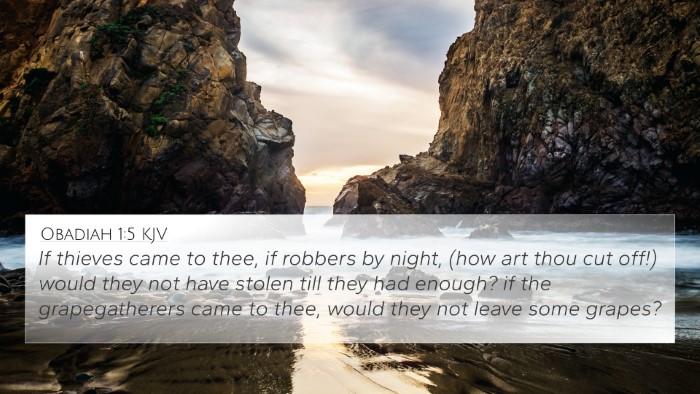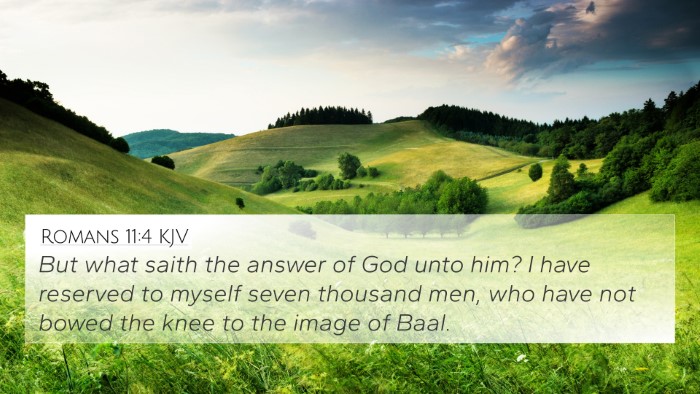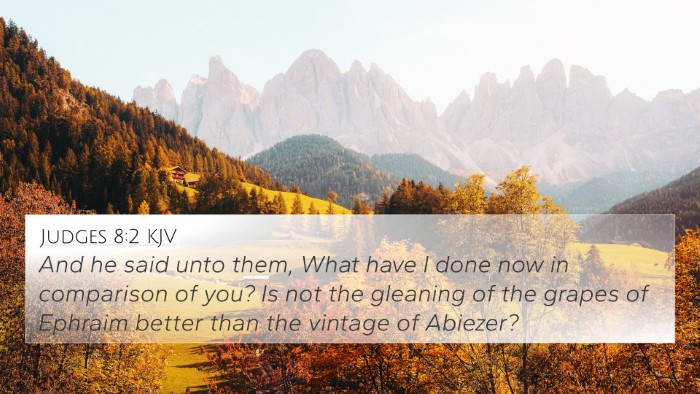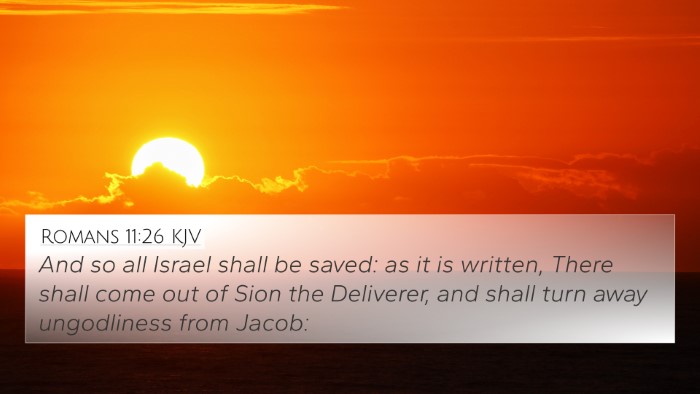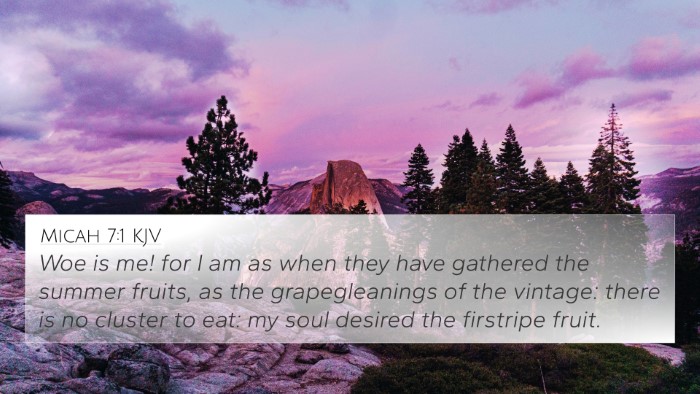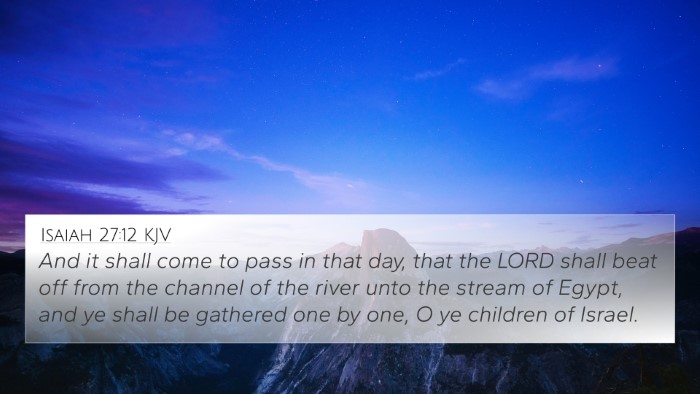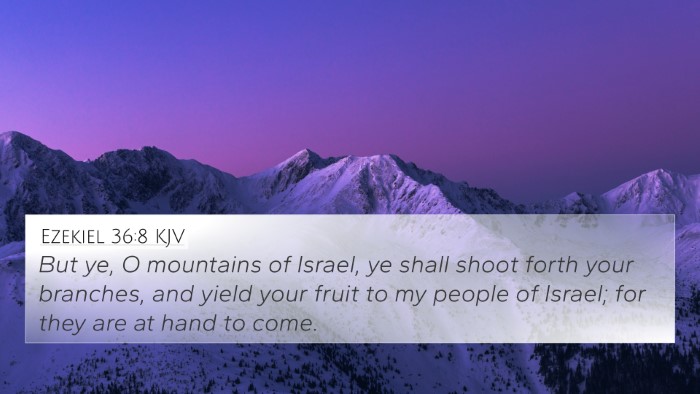Meaning and Interpretation of Isaiah 17:6
Isaiah 17:6 reads: "Yet gleaning grapes will be left in it, like the shaking of an olive tree—two or three olives at the top of the uppermost bough, four or five on its fruitful branches," says the Lord God of Israel.
Summary of Isaiah 17:6
This verse conveys a profound message about judgment, yet it also offers a glimmer of hope amidst devastation. The imagery of gleaning grapes and remaining olives highlights God's mercy and the remnant that survives His judgment.
Commentary Insights
Matthew Henry’s Commentary
Matthew Henry emphasizes that even in the midst of destruction, God preserves a remnant. This reflects His grace and the reality that while nations may face judgment, individuals can still find favor in His eyes. Henry points out that the "gleaning" signifies that not all is lost and portrays God's providence, as He always ensures that a portion remains for future restoration.
Albert Barnes’ Notes
Albert Barnes elaborates on the symbolism of the gleaning grapes and olives. He interprets this as a contrast between the total destruction of cities and the survival of a few faithful. Barnes notes that the mention of olives indicates the richness of the land and God's promise to maintain a remnant of His people, showcasing divine mercy even in judgment.
Adam Clarke’s Commentary
Adam Clarke highlights that the remnants symbolize hope. He sees the "two or three olives" as those who maintain their faith despite external trials. Clarke indicates that this survival serves as a reminder of God’s covenant and His willingness to restore His people, even after adversity.
Bible Cross-References
It is essential to understand Isaiah 17:6 in light of other scriptures. Here are several key cross-references:
- Micah 7:1-2: Describes the lack of righteous people, paralleling the theme of a remnant.
- Jeremiah 5:1: Calls for a search for the faithful in the land, similar to the imagery in Isaiah.
- Romans 11:5: Paul speaks of a remnant according to grace, echoing Isaiah's message.
- Isaiah 10:20: Connects the survival of a remnant to trust in the Lord, reinforcing Isaiah's theme.
- Revelation 3:4: Mentions those who have not soiled their garments, a theme linked to the faithful remnant.
- Zephaniah 3:12: God promises a humble and lowly remnant, drawing parallels to Isaiah's message.
- Psalm 37:28: States that the Lord will not forsake His faithful, resonating with the idea of preservation.
Thematic Connections
The message of Isaiah 17:6 highlights the broader Biblical themes of judgment and mercy. Understanding these themes can be facilitated through cross-referencing Biblical texts:
- Grace in Judgment: The concept of grace prevailing even during times of judgment is prevalent throughout scripture.
- Survival of the Remnant: Multiple verses reinforce the idea that God preserves a group of faithful individuals throughout tumultuous times.
Tools for Bible Cross-Referencing
For those interested in deeper study of Isaiah 17:6 and its connections, various tools can aid in the process:
- Bible Concordance: A useful tool for finding relevant verses associated with specific terms.
- Bible Cross-Reference Guide: Guides that help identify relationships between verses.
- Bible Study Methods: Various methods can include thematic studies and comparative analysis among scripture.
How to Use Bible Cross-References
Utilizing cross-references involves identifying topics or key terms in a verse and exploring other verses that relate to these elements. This enhances understanding and reveals inter-Biblical dialogue.
Conclusion
Isaiah 17:6 serves as a significant reminder of God's judgment tempered with mercy. By exploring cross-references, one can gain a more expansive understanding of Biblical themes and a broader view of God's ever-present grace for His faithful people.
Keywords for Further Study
- Bible verse cross-references
- Connections between Bible verses
- Linking Bible scriptures
- Bible verses that relate to each other
- How to find cross-references in the Bible
